Is fruit juice the new cola?
Fruit juice vs whole fruit : which one is better?
The most trustworthy source of food and
fitness journalism in the country.
Editor’s Note: Thrilled to have Amita Gadre write for us. As a clinical nutritionist, she offers sustainable nutrition advice and busts diet myths on her very engaging and informative Instagram account — where I discovered her expertise.
In today’s issue, she explores the often-overlooked downsides of fruit juices, comparing them to the rich nutritional value of whole fruits. This topic is frequently debated, and Amita’s insights promise to bring much-needed clarity to the conversation.
“Mumma, can I buy this box of juice instead of cola? It’s healthy!” said my ten-year-old.
“First, check the total sugar on both the labels,” I told him.
“Oh no. That’s not fair! Both have 10% total sugar,” he wailed. “But what about the other vitamins and minerals this juice has and cola does not? That counts, right?”
This conversation exemplifies a typical thought process among consumers who want healthy items. And not just children think this way—adults do, too.
It might seem like simple reasoning: fruit juice comes from fruit, and because fruit is healthy, it must be healthy too.
Right?
Wrong.
The World Health Organisation classifies the sugar in fruit juice as ‘free sugars.’ This means it’s in the same category as the sugar you add to your tea or the sugar in your cola. In nutritional terms, there’s no difference.
What about the vitamins and minerals in fruit juice? They are often too scarce to matter—you will get much more from even 100g of vegetables.
Let’s talk about this in more detail: in today’s newsletter, I’ll explore the sugars in fruit and fruit juices, the different types available, and how you can make informed choices.
First: Solid vs liquid calories
Fruits and fruit juices may seem similar, but they affect our bodies differently.
When you eat a piece of fruit, you’re getting sugar as fructose, but you’re also getting healthy fibre, vitamins, and minerals intact. The fibre in the fruit ensures the sugar is absorbed into your blood more slowly, and you feel full for longer.
Fruit juice, on the other hand is stripped off most of its fibre, gets absorbed immediately into our bloodstream and we end up completely missing the satiety loop. And the juice extraction process can reduce the vitamins and minerals content due to oxidation.
This means the sugar in the juice enters your bloodstream quickly, like a sugary soft drink, and doesn’t make you feel full. So, you might end up consuming more calories without realising it.
You are not likely to eat three apples in one sitting, but you can very easily gulp down a glass of fruit juice from the same three apples and want more.
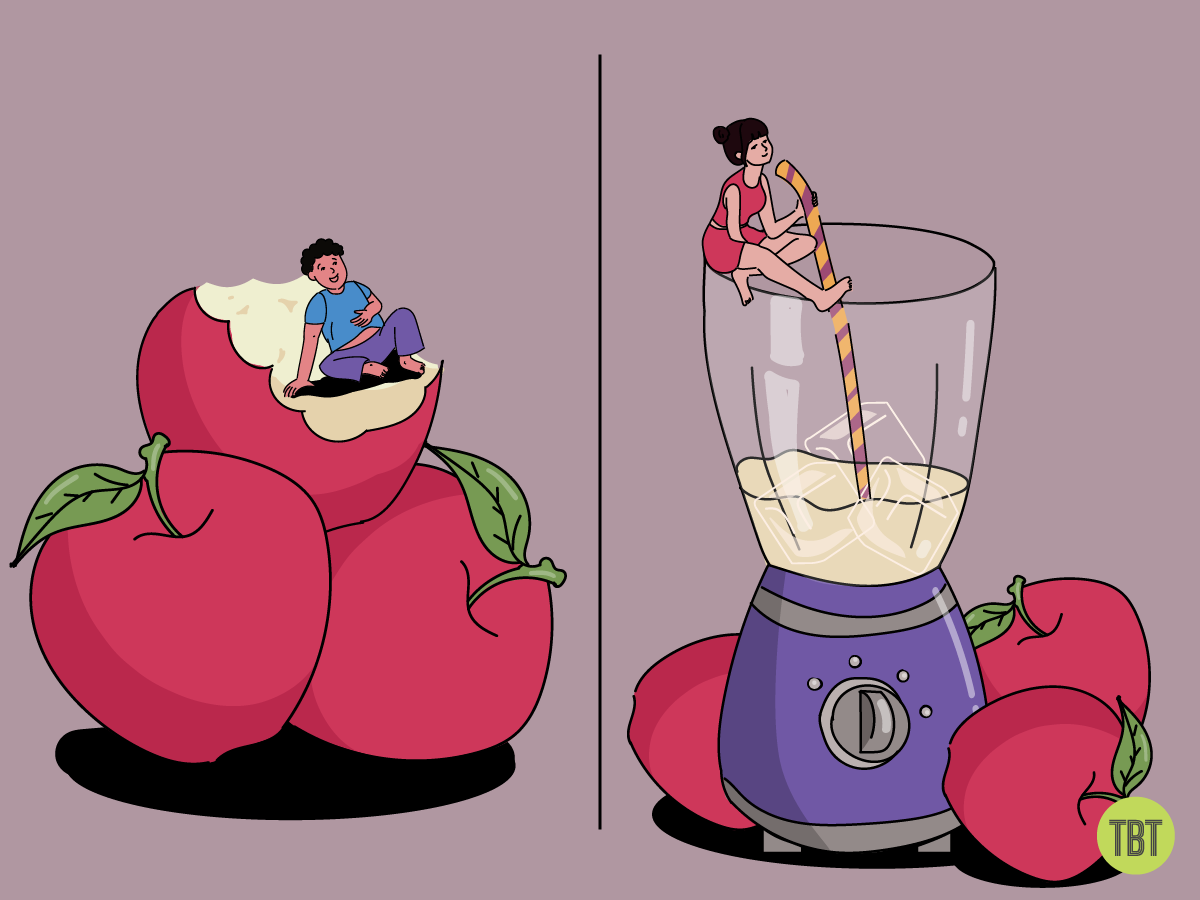
Whole fruits make you feel full as compared to fruit juice
In simple terms, whole fruit gives your body more balanced nutrition and helps control your appetite, while fruit juice can act more like a sugary treat.
🍋Tell your friends to NOT make lemonade when life gives lemons
Second: Are any juices good?
I don’t believe so. Here is why.
1. Commercial Fruit Beverages: These drinks are all around us and we mistakenly think they are fruit juices. But the thing is, they contain little to no real fruit juice and are mainly made of water, less than 15% fruit concentrate, sweeteners like high fructose corn syrup (HFCS)—a sweetener made from corn—artificial flavours, and colouring. They might taste fruity, but there is no fruit. HFCS is particularly problematic, as it’s linked to various health problems like obesity and diabetes.
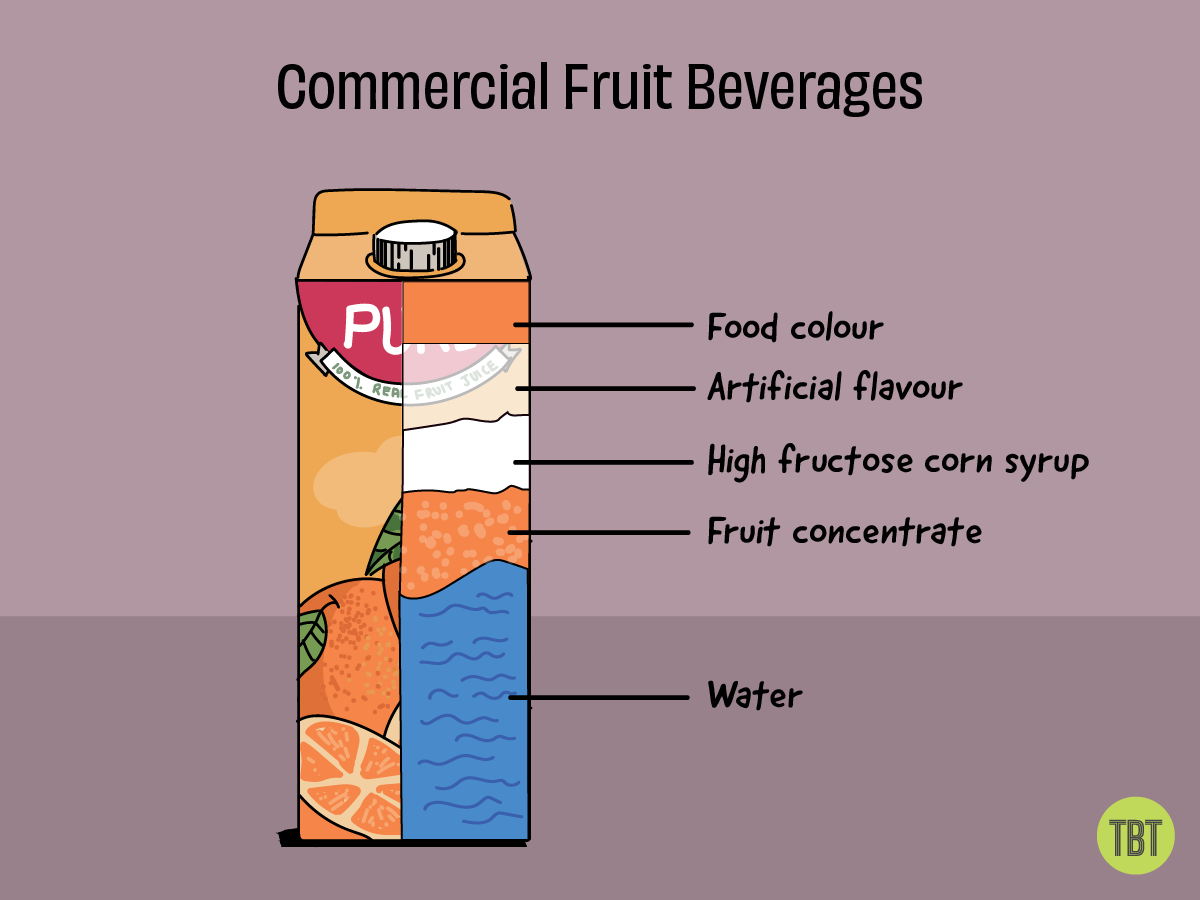
Reminder: always read labels.2. Cold-Pressed Juices: These are marketed as the most natural and healthy juice option. Made by mechanically pressing or grinding fruit without heat, they contain more natural fruit juice and retain more nutrients than the other two types.
However, again, they are still devoid of most of the fibre, and their nutritional content—like vitamin C and antioxidants—can degrade quickly if left on the shelf for more than four hours.
3. Homemade 100% Fruit Juice: This type of juice is made entirely from squeezed or pressed fruit, with no added sugars or artificial ingredients. However, even 100% fruit juice lacks the fibre found in whole fruit and contributes to quicker sugar (the natural fruit sugar) absorption in the body, though it generally retains a little more vitamins and minerals than the other types.
The point is: despite the different production methods and content, none of these juice options can truly replicate the nutritional benefits of eating whole fruit. The best choice remains to enjoy fruit in its natural form, as it offers a balanced intake of sugars, fibre, vitamins, and minerals.
🍌Go bananas sharing this article
Third: What about sugar spikes from fruits?
If fruit juice that comes from fruit is to be consumed with caution, would the same thing not apply to fruit? What about the sugars in fruit?
The keto and carnivore diet community often go to the extent of trying to blame rising diabetes levels on fruit intake.
Ignore that. Because eating fruit provides sugar in a form that’s very different from added sugars like those in sweets or sodas. Fruits are low energy density, meaning they fill you up without loading you with calories. And as mentioned above, the fruit fibre slows sugar absorption, so the sugars are released slowly into your blood, preventing harmful spikes in blood sugar levels.
This same fibre also helps you feel full and satisfied, supports good bacteria in your gut (prebiotics), and can even contribute to maintaining a healthy weight. Unlike free sugars, which can harm your health, the sugars in fruit are part of a balanced and beneficial package.
This is also why you will find that most whole fruits have a medium glycemic index, while fruit juices all have a high glycemic index. The higher the glycemic index, the faster you see a rise in blood sugar levels.
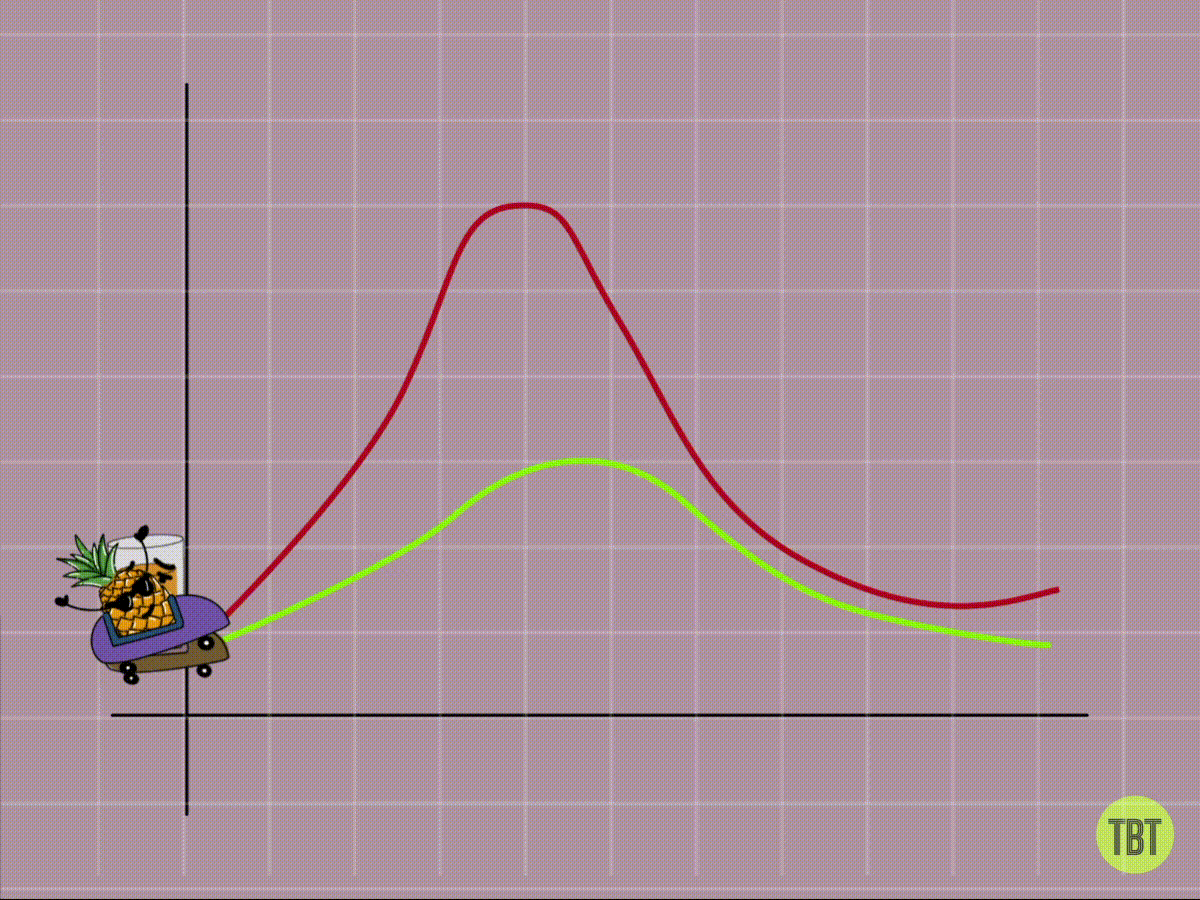
What your sugar spike looks like on fresh juice vs whole fruit
Of course, those with diabetes or insulin resistance must be cautious about rising blood sugar levels, and rightfully so. But in general, the increase is less with whole fruit than with fruit juice, thanks to the fibre.
Pairing whole fruit with protein or fat-rich food like nuts or nut butter can lower the sugar spike. It’s important not to overindulge in fruit and to eat it in smaller portions, either with a meal or as a standalone snack.
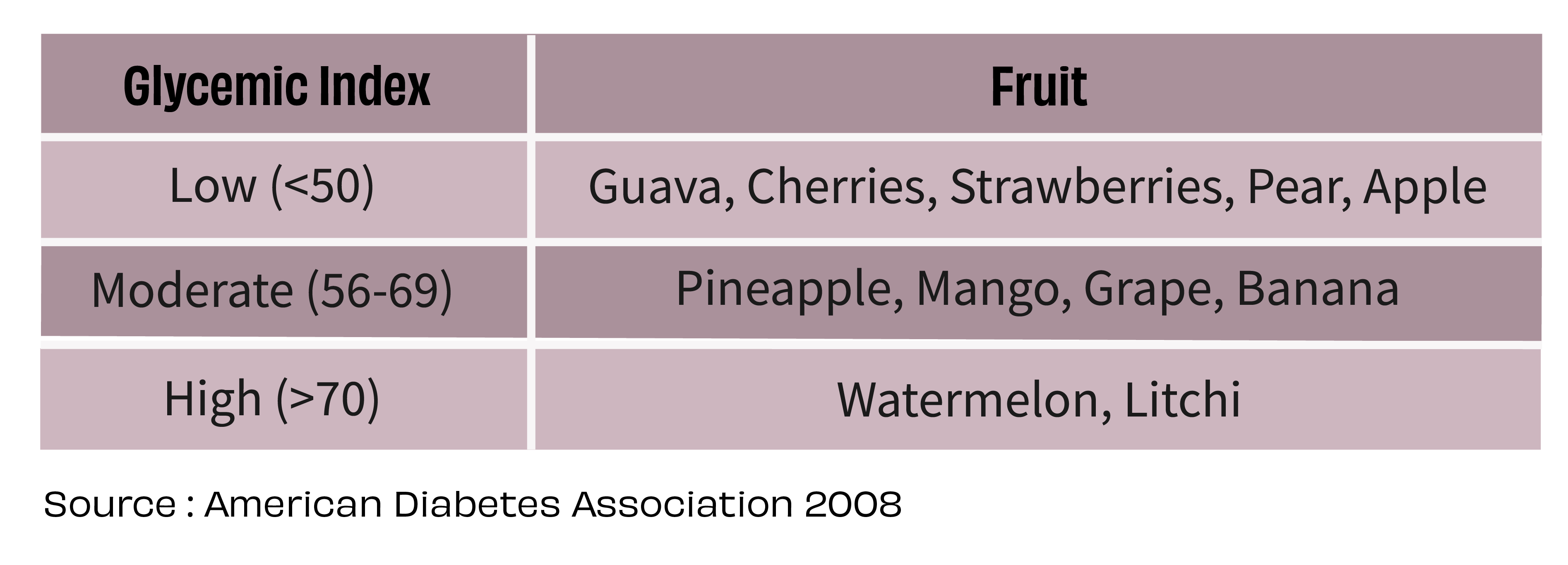
Fourth: Fruits and obesity?
Fruits have often been misunderstood in the context of weight loss, with some fearing that the natural sugars in fruit may lead to weight gain. Not really. In fact, opting for a piece of fruit instead of a high-calorie snack can support weight management. The sugars in fruit are part of a whole, balanced nutritional package that is generally more conducive to a healthy diet and weight than many alternative snacks.
See table below for a calorie comparison.
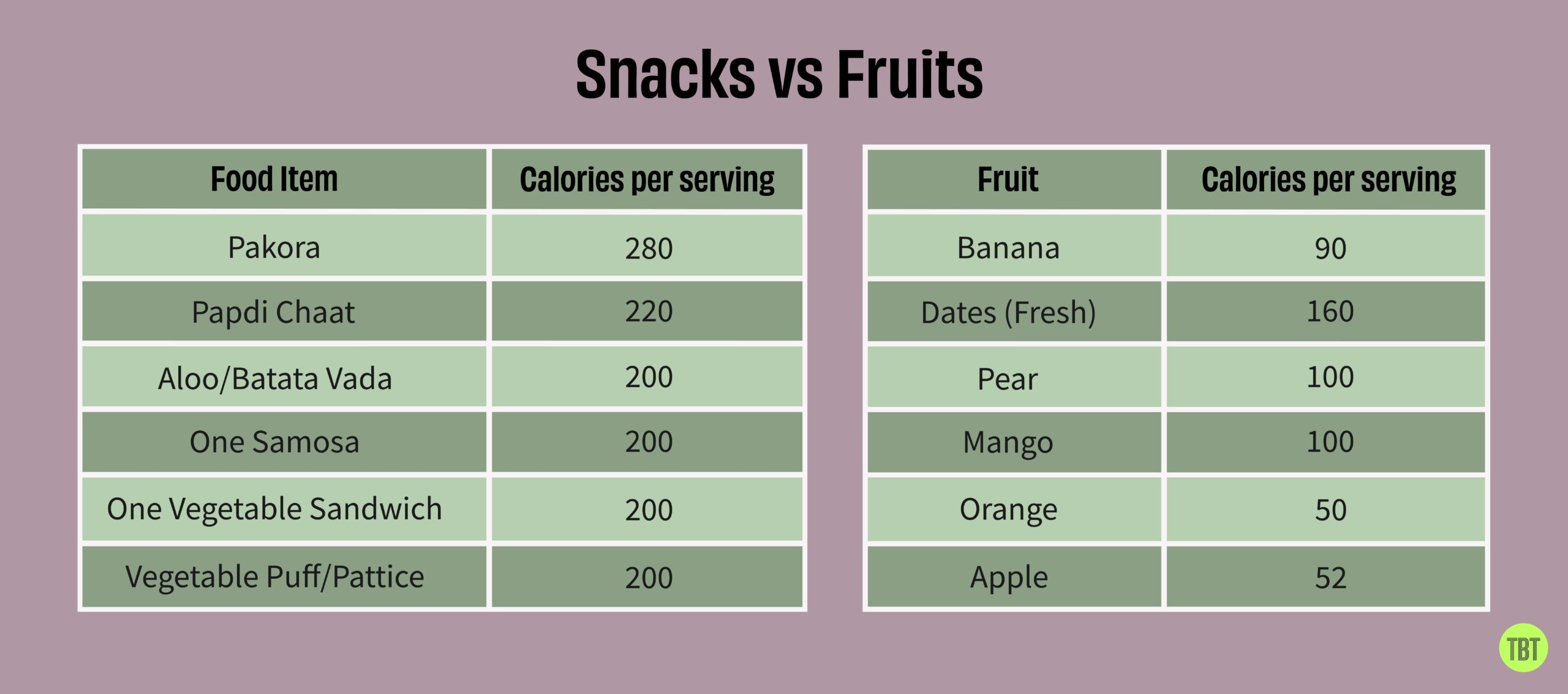
Calorie comparison of snacks vs fruits
The bottom line is my son will have to make peace with eating fruit rather than drinking it. So should you!
🍑Be a peach and share this with your friends
